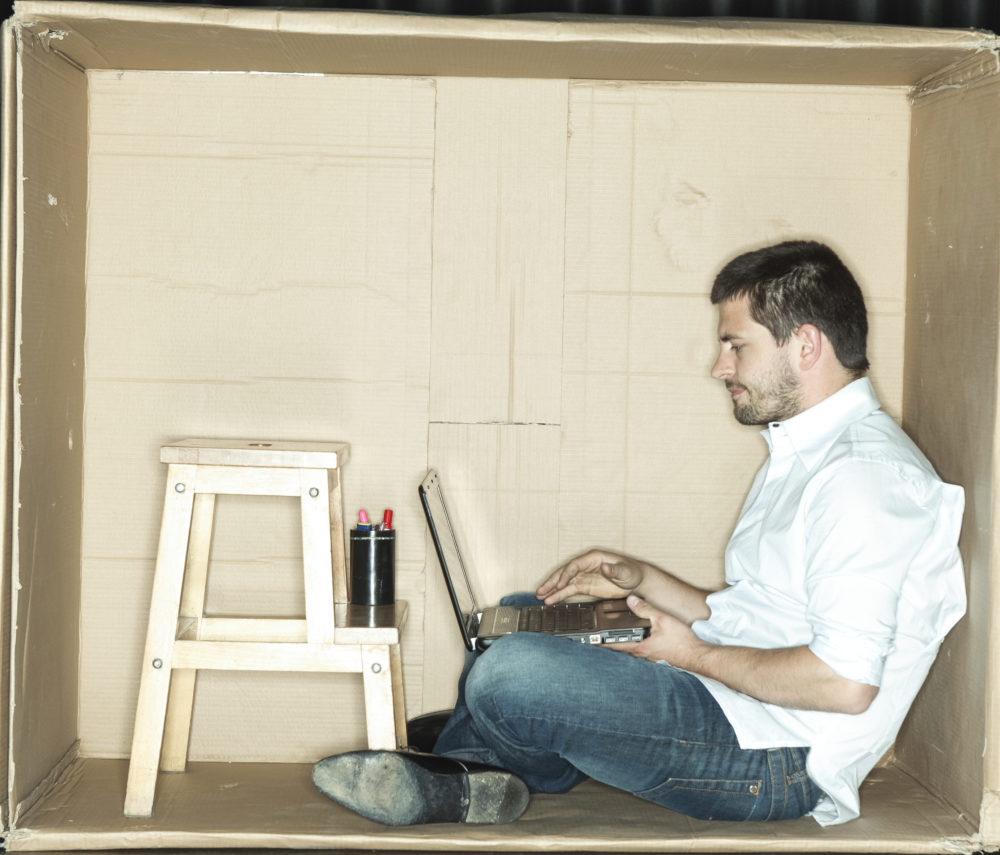Office working environments have changed dramatically over the last few decades.
In 1992, regulations were passed for businesses to provide no less than 40 square foot per person in an office.
It states, ‘Every room where persons work shall have sufficient floor area, health and unoccupied space for purposes of health, safety and welfare.’
The formula is:
‘The total volume of the room, when empty, divided by the number of people normally working in it should be at least 11 cubic metres. In making this calculation a room, or part of a room, which is more than 3.0m high should be counted as 3.0m high. The figure of 11 cubic metres per person is a minimum and may be insufficient if, for example, much of the room is taken up by furniture etc.’
What this means is whilst 11 cubic metres x ten people = 110 cubic metres would appear to be acceptable, you would have to take into account that machinery, desks, filing cabinets and other furniture may in practical terms reduce the space available to the extent that it is unacceptable.
Employee satisfaction needs to come first
The UK has come a long way. To retain the best staff, it’s no longer simply personal desk space that’s important; businesses need to be considering how supporting their employees’ wider wellbeing will have the knock-on effect of encouraging productivity.
Guidelines by organisations like BREEAM and BCA (Business Centre Association), encourage business owners to design spaces that put employee satisfaction first. From controlled sound levels in open-planned offices, to wellbeing programmes, natural lighting, and 24/7 access, there are a multitude of subtle adjustments that can be made to create inspiring working environments for happier employees.
Some offices now have meditation rooms, quiet breakout areas and exercise classes.

Ensuring our environments are set up to promote wellbeing is central to our ethos at Origin Workspace. Our community managers are training to be mental health mentors and we provide lots of opportunity for exercise and making healthy choices. Business owners are also increasingly starting to understand the importance of giving employees an option to change their working environments, by either having a quiet place to write, or going for a walking meeting around the office or nearby park.
Not knowing how much space you’ll need
One of the challenges faced by company directors planning to scale a business is the uncertainty around the amount of space they will need in two-three years. Traditional office leasing models can be restrictive, tying a company down for a number of years to a space that might not cater to the ever-changing needs of a growing business.
So, it’s not surprising the co-working industry is going through a real growth period. New research by international property consultancy JLL showed twenty per cent of all office space to let in Bristol this year will be used for flexible co-working. From dedicated desks for companies wanting an open office environment, to cellular office space offering teams privacy, and hot desking options for business owners hiring in temporary contractors, co-working spaces offer flexibility to businesses across various industries.
In the next five years we expect to see that figure rise, as demand increases for multiple office spacing options per person, whether that be a quiet space to make conference calls, a hot desk closer to home to work from for a portion of the week or fully-serviced office spaces offering resources and wellbeing facilities to retain talent.
See also: Make the most of your office space
Rob Hingston is the head of Origin Workspace.





